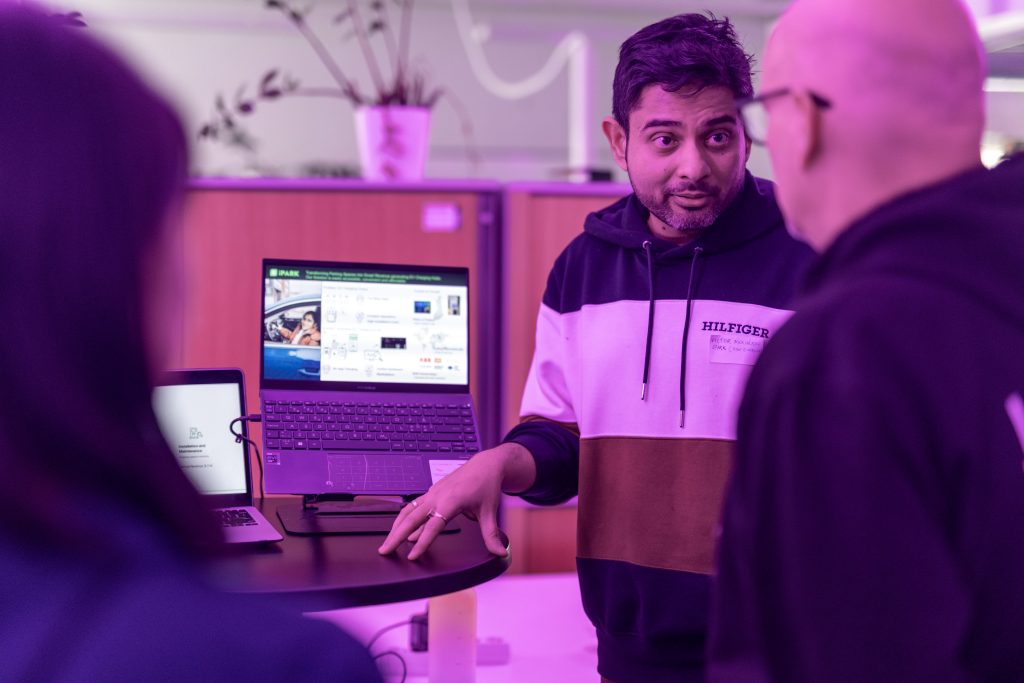Growth opportunities are lost when large organizations fail to acquire new innovations from startups. According to a survey conducted among startups, practical collaboration is challenging despite the demand for innovation and startups’ readiness to cooperate. Structural challenges often hinder the adoption of new solutions, as revealed by a survey conducted as part of the Smart Business, Big Impact initiative by KIRAHub, Urban Tech Helsinki, and the KIRA growth program.

Public sector’s reluctance to take risks slows down solution development and adoption
Stability and risk aversion are often at the core of large public administration organizations. Respondents to the Smart Business, Big Impact survey agreed that caution and the risk of failure lead to the avoidance of new solutions, resulting in potentially beneficial solutions going unused. Responses indicate that many larger organizations expect a new solution to be already established as common practice before it is considered an option.
This rigid mentality persists during a crucial period when startups and growth companies are recognized as key drivers of economic growth according to the Finnish government’s growth initiatives. “The most crucial action to advance this is procuring new solutions from these startups”, states Teemu Lehtinen, CEO of KIRAHub, an ecosystem for the built environment and construction sector.
Need for better pilots
Startups emphasize the importance of piloting for building trust and testing solutions. However, pilots are often misunderstood or misused. Despite a larger organization participating in several pilot projects and being inherently keen on experimentation, pilots rarely progress further.
“It’s vital to understand that purchasing innovative new solutions and services from startups is not charity. It is a rational strategy. By purchasing new solutions, corporations and the public sector can enhance their operations to be more sustainable and efficient, while startups can simultaneously develop new, profitable business ventures”, adds Eetu Helminen, head of the Urban Tech Helsinki accelerator.
Many startups report that, in the current process, pilots are treated as procurement for a finished product rather than as a testing platform where solutions can be developed and modified. This restricts learning, adaptation, and co-development. Furthermore, a pilot implementation doesn’t always have clarity or responsibility: they can be left unfinished or the results not utilized.
Procurement practices do not support testing
One of the most common barriers to solution scaling is the conditions created by public procurement. Startups describe current procurement practices as exclusive and burdensome. Processes are lengthy, bureaucratic, and designed for stable, established actors. Often, participation criteria such as requirements for turnover size exclude startups from the beginning.
The possibility for innovative procurement theoretically exists, but in practice, it is rarely used. Even when there is funding or interest, the system itself makes participation impossible for most startups.
Two percent is enough
Major players are now being challenged to increase procurements from startups. An allocation of even two percent of the procurement budget to buying innovative and sustainable solutions from startups would be significant, and many solutions, pilot projects, and innovations would see the light of day.
“We challenge the industry and public actors to commit to using 2 percent of project budgets for purchases from startups. Now is the time for pioneers to raise their hands and publicly announce their goals”, states Mia Toivanen, director of the KIRA growth program.
Additional information:
Eetu Helminen
Project Manager
Urban Tech Helsinki
eetu.helminen@aalto.fi
+358505707855
Mia Toivanen
Program Director
KIRA Growth Program
mia@kirafoorumi.fi
+358405667536
Teemu Lehtinen
CEO
KIRAHub
teemu@kirahub.fi
+358405667536
Smart Business, Big Impact initiative
The initiative develops practices that allow startups, cities, public organizations, and corporations to break the barriers of purchasing from startups and collaborating with them. This approach provides growth companies with new customers and enables international growth. The initiative by Urban Tech Helsinki, the KIRA Growth Program, KIRAHub, and Proptech Finland challenges major players to allocate 2% of their project budgets to purchasing from startups.
Urban Tech Helsinki
Urban Tech Helsinki is an incubator supporting innovative and growth-oriented companies that address urban challenges. Its main goal is to explore clean and sustainable urban solutions, focusing on areas such as clean energy, mobility, sustainable construction and urban development, the circular economy, and urban food production. The incubator is a joint project between the city of Helsinki and Aalto University.
KIRAHub
KIRAHub is an association and innovation hub promoting sustainable digitalization in the real estate and construction sector by bringing together a wide range of industry stakeholders. KIRAHub acts as a catalyst for industry development by providing a collaboration platform where companies, the public sector, research organizations, and other stakeholders can share knowledge, develop innovations, and create sustainable solutions. It aims to accelerate digitalization, promote the achievement of climate goals, and enhance industry competitiveness and responsibility.
KIRA Growth Program
The KIRA Growth Program is a development program for the real estate and construction sector aiming to revitalize industry expertise and operational models and to accelerate industry experimentation, development, and export projects. It gathers communities and clusters around agreed themes, initiates development projects, scales up effective solutions, and conducts informational events and training sessions.
